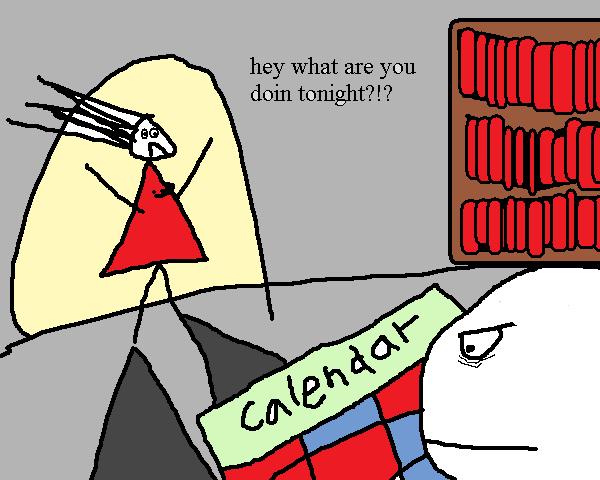How to Kill a Character
This is how the great Patrik Ourednik kills a character. Let it be a lesson to one and all:
Naiman died as stupidly as he lived. One day he decided to get a new washing machine for the cottage. But what to do with the old one? He loaded it into his car, drove into the forest, and rolled the machine to the top of the hill, intending to push it into a gorge; one garbage dump more or less, the Czech woods had survived worse. But no matter how hard he leaned into the thing, it wouldn’t budge, so, taking a few steps back, he sprinted forward, spinning around and throwing his haunches into it; the washer sailed into the gorge and Naiman along with it. Some nosy hiker discovered the body five days later, and the South Bohemian Tribune ran a brief obituary headlined “Expert Meets Tragic Death.”
Dyk gave a creaky laugh. Memories are the balm of old age.
The Moby Awards (Best Book Trailer) finalists are announced. Good on the lot of you! (Happy to see Kathryn Regina’s I’m In The Air Right Now on the list, as I suggested it. Happy to see the others, too. Also, though, self-attentive.)
Wi-fithering Heights

What the hell, is that a laptop by Emily Bronte (d. 1848)? I assumed it was photo-shopped, but upon searching online, every version I found (from reliable non-satirical websites) shows the same laptop. It also looks like she’s fingering (probably should’ve used another word) her phone.
Some Stuff
Semester is finally over and now I feel like I have so much to tell you about…
Jessica Smith is compiling “An evolving, informal and incomplete list of contemporary female poets writing in (or translated to) English”
David Shields has an interesting interview at 3QD, in which he offers “A Very Partial Reading List” of his 120 favorite books ever written
Fukuyama reviews Julian Young’s biography of Nietzsche
Thalia Field has a new book out, which she co-wrote with Abigail Lang, called A Prank of Georges
U of Georgia Press is holding their annual Flannery O’Connor Award for Short Fiction
MLP has announced that anyone who pre-orders Sasha Fletcher’s WHEN ALL OUR DAYS ARE NUMBERED before June 1st will receive a free copy of a companion chapbook called THE WORLD CHANGES AS IT WRAPS AROUND YOU.
Larry Fondation reviews Vanessa Place’s La Medusa
Bradley Sands has a new book out called My Heart Said No, But the Camera Crew Said Yes!
Oh, and here is David Lynch’s short film “The Alphabet” (1968)
httpv://www.youtube.com/watch?v=jmMwKBMse_w&feature=player_embedded
I Like Lawrence Schimel A Lot

Lawrence Schimel is a prolific writer, editor and publisher living in Madrid, Spain. From erotica to ghostwritten biographies to children’s books, there’s seemingly nothing he cannot write. As publisher of A Midsummer Night’s Press, he is responsible for three imprints and he’s also a friend, like for real. We talk about his press, his writing and his life as an ex-pat writer. Won’t you listen in?
How did A Midsummer Night’s Press come about? Why that name?
When I was an undergraduate at Yale, there was a Vandercook letterpress in the basement of my dorm. I had already begun publishing in anthologies and journals, and I decided to publish a series of limited edition hand printed broadsides. I contacted some writers I already knew or had worked with (Jane Yolen, Nancy Willard, etc.) and asked them for poems, printing runs of 126 copies, 100 numbered which were available for sale and 26 lettered copies which were shared between the author and the press.
When I graduated, the press went on hiatus until 2007 when I started publishing commercially-printed, perfect-bound books.
As for the press’ name, I began writing and publishing science fiction when I was a teenager (Marion Zimmer Bradley bought a story for one of her anthologies when I was still in high school), and since I was known by the nickname “Puck” in SF fandom it just seemed logical to name my press after the same Shakespearean play.
“Htmlgiant blog post about the use of quotes”

The “Blog” of “Unnecessary” Quotation Marks is a celebration of obtuse and/or excess rhetoric, offered as utilitarian measure by various small-time vendors. I appreciate the joyous examples, given their contrast to the more affected self-conscious use of quotation marks used by writers today. It gets me thinking about the intent of syntax: where meaning is augmented, or even fractured, by the play of the writer. In “Do Not” take this “Lid”, it seems they are conceding to the questionable function of said “Lid,” and asking for liberty in calling it such a thing. “Do Not“ may be quoted to suggest an awareness in the cliche, or maybe in solidarity to it. Notice only the appropriated terms are capitalized, as if the true disposition of such assertion were of a more modest nature. I’m probably reading too into this, I just like thinking about the minutiae of sentences often taken for granted.

